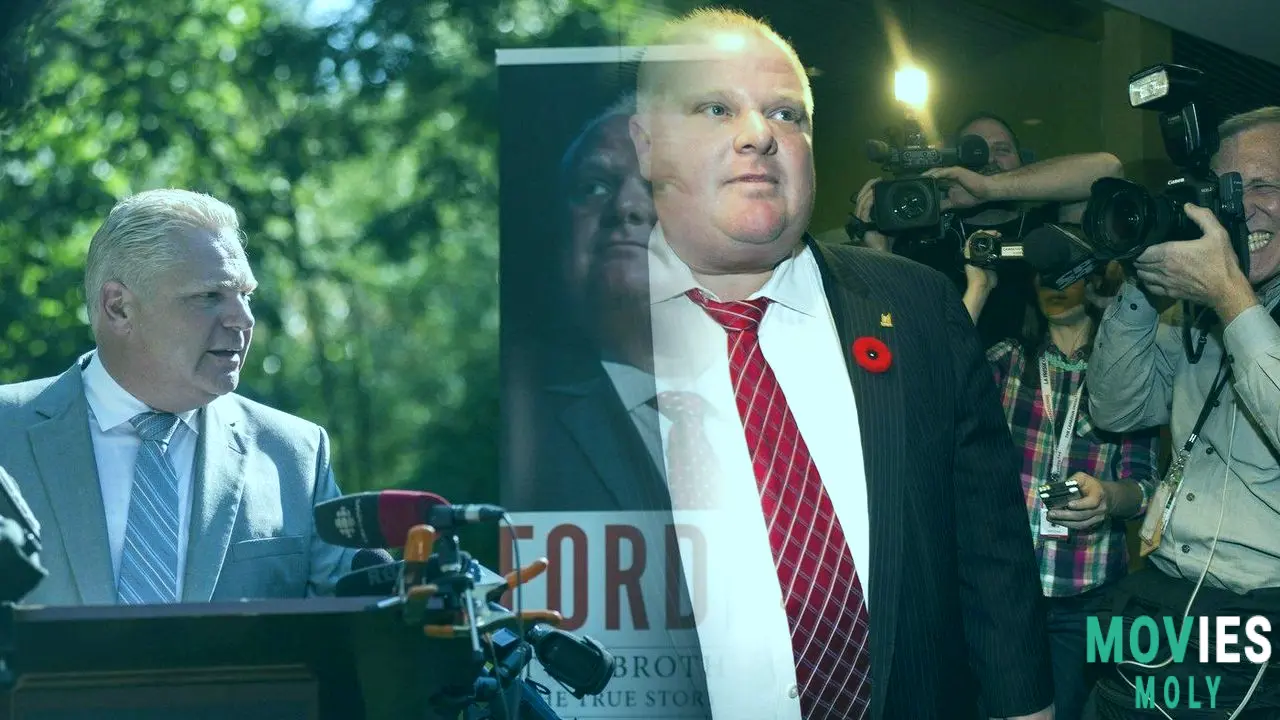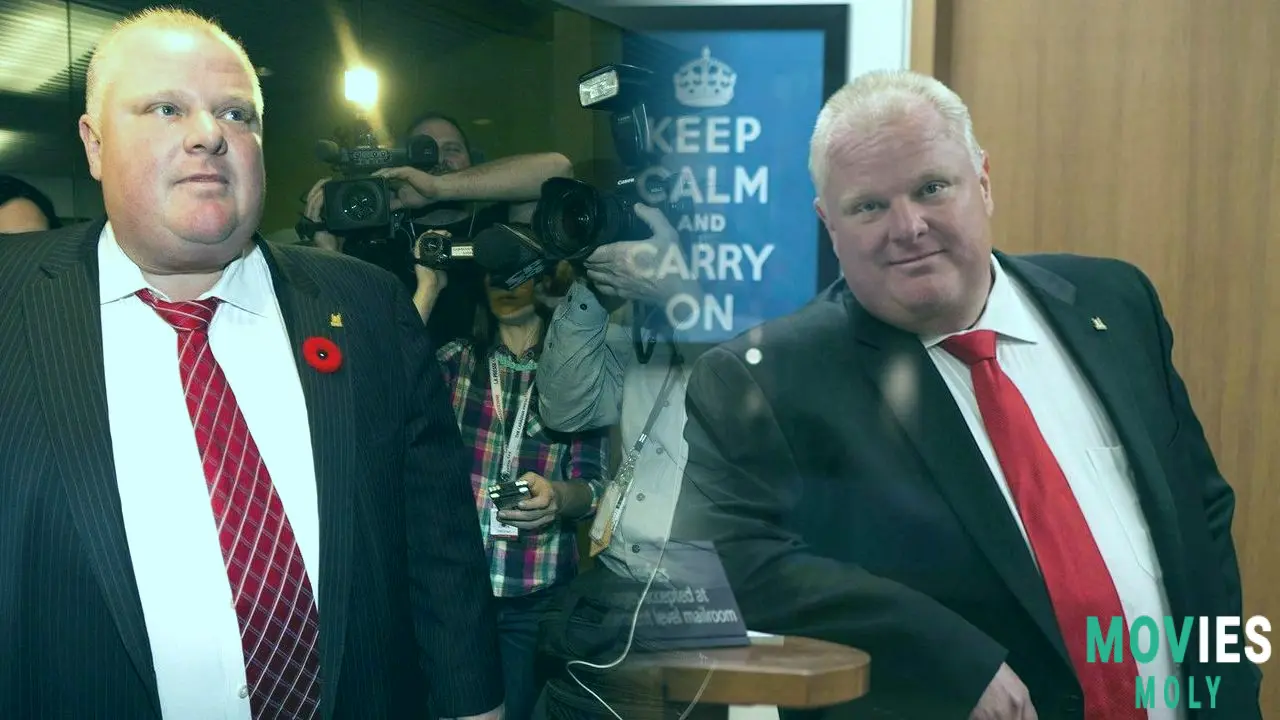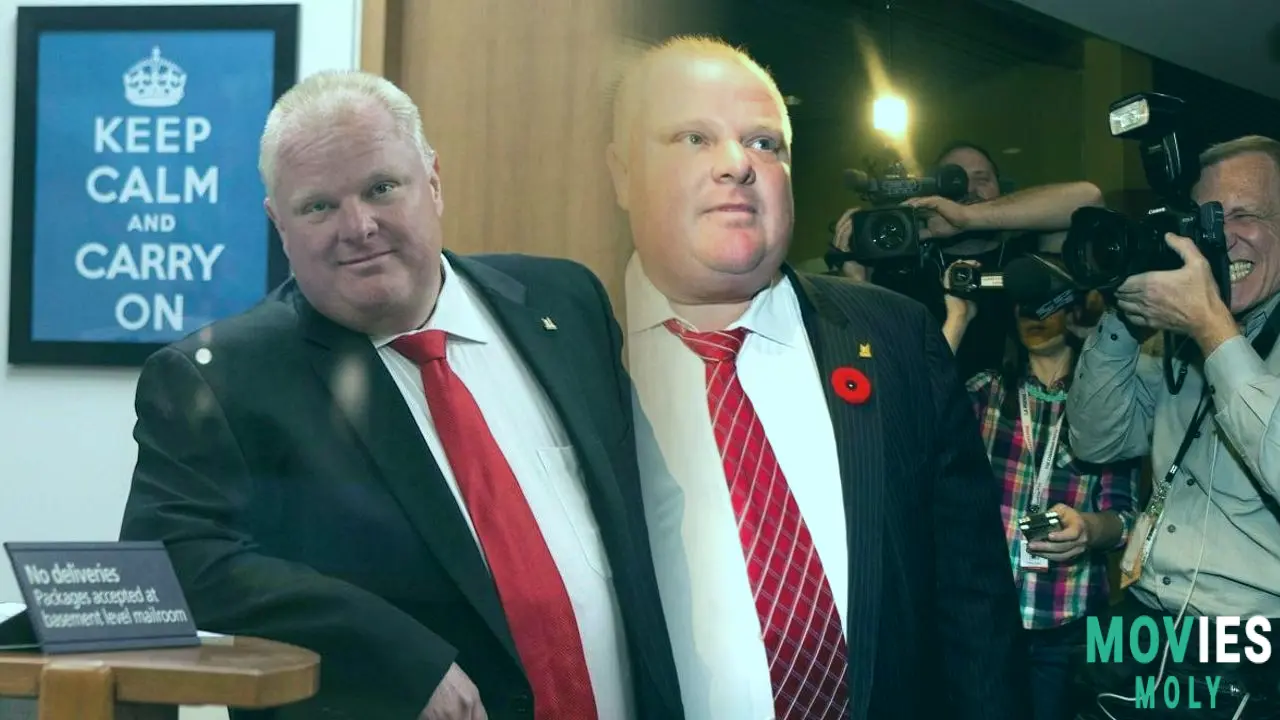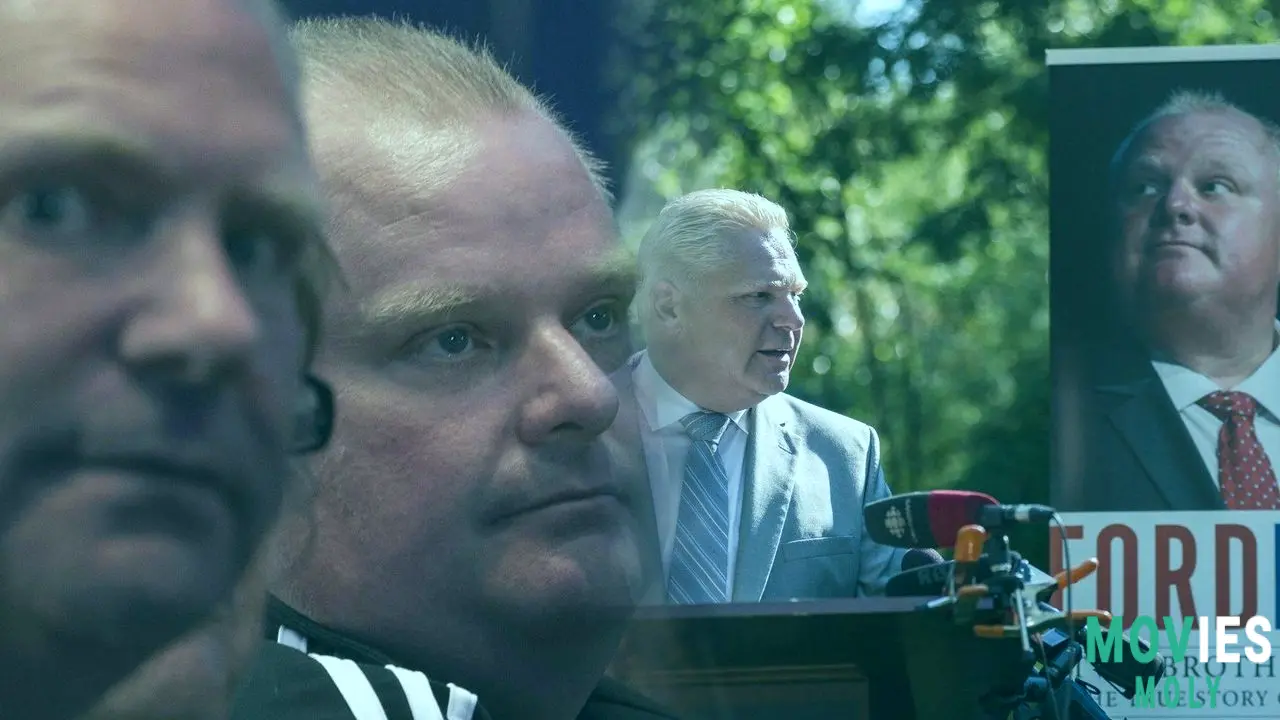I still remember being astonished to learn from halfway around the world that Toronto mayor Rob Ford had been caught on tape consuming crack cocaine. "What is happening in Toronto? When the news came in 2013, filmmaker Shianne Brown of London, England, said, "That is unbelievable." The late mayor immediately gained widespread recognition. First for the astounding assertion he ultimately admitted to, and then for the several controversies that ensued. These included allegations of public intoxication and even knocking over a city council member. It was definitely an exciting time to watch the news.
More than a decade later, Brown is the director of Trainwreck: Mayor of Mayhem. This new Netflix series explores the narrative of Ford's ascent to power and his turbulent tenure in office. This episode is from Netflix's Trainwreck series. The series focuses on "some of the most awful events ever to blow up in mainstream media." Brown expressed a desire to get to know Rob Ford on a personal level. She didn't want to just look at the news stories about him. This is something that I believe many viewers will appreciate. It is easy to recall only the shocking moments, but there was a genuine person in the midst of it all.
There is a method to narrate this story that simply highlights the controversies. However, Brown believed that would not do the story justice. It would not be fair to Rob Ford, his numerous followers, or his friends and family. Brown asked Ford's brother, Ontario Premier Doug Ford, to appear in the film. She "kindly declined." Brown understands the choice. She claimed it was a terrible story because of how he died. You must respect the family's wishes, especially for a show like this that will discuss the hardest aspects of his tenure in office. This helps to demonstrate a personal approach to a highly publicized story.
Rob Ford's rise to power and his connection with people who felt excludedUnderstanding How Toronto's Controversial Mayor Became So Popular With Voters
The show combines archival video with interviews with local writers such as Robyn Doolittle. She wrote extensively about Ford's political career and authored a book about him. It also interviews those close to Ford, such as his former driver, Jerry Agyeman. The documentary follows Ford's rise to power in 2010. He gathered a sizable base of fans in the suburbs. He accomplished this by proposing tax cuts and speaking out against traditional practices. He made those who felt overlooked feel strong. He was frequently the person who spoke to the cleaner or the janitor. These are the people who keep our life running while not always receiving gratitude from others.
Brown believes that Ford's message about sticking up for "the people" against what he called "downtown elites" is still relevant today. It demonstrates a larger shift in how power is acquired around the world. Brown cited the Brexit vote in the UK and Donald Trump's first election in the United States. Many people initially did not believe these outcomes were likely. She stated that Rob Ford did not appear to have ill motives. He seemed like a man who wished to serve others. But half of the city simply did not agree with his political views. This shows that there is a deeper personal story underlying the political spectacle.
The show depicts the mayor's often tense relationship with local reporters. It depicts him repeatedly becoming enraged at those he perceived as foes. Brown believes that if he had simply acknowledged to smoking crack from the start, his case would have been significantly improved. She believes he made mistakes in his interactions with the media, particularly when he called them liars. This is a valuable lesson for everyone in the public spotlight. Acknowledging mistakes early on can make a significant difference.
The Public Struggle Against Addiction That Defined Rob Ford's Mayoralty

How the media captured his personal struggles for the world to see.
Brown stated that the more she researched the story, the more she realized how frequently cameras captured Ford coping with substance misuse. A social media video from 2013 shows him plainly drunk at a festival. There's also footage of him tripping and cursing outside City Hall in 2014. These viral footage of his bizarre public behavior made him a popular topic on late-night American television. He even appeared on Jimmy Kimmel Live! while the crack story was unfolding. It demonstrates how much of his personal life became a public spectacle.
Brown noted that this was a man battling addiction in a public setting. She considers addiction an illness. She hoped that the presentation would make it evident that he was a struggling guy. He had to face the media every day. She questioned whether the story would have been reported differently now. This is because we now have a better understanding of mental health. It makes you consider how we treat people who are struggling in the public eye. The show encourages viewers to consider what led to the iconic crack video. Following the controversy, Ford lost most of his mayoral authority. Brown thinks that the video would change people's perceptions of who he was and what happened.
Rob Ford's documentary follows a long line of films about public figures.

How Trainwreck: Mayor of Mayhem fits into the world of controversial celebrity stories.
The Rob Ford documentary is part of a larger trend in film. There are numerous additional shows that focus on public individuals who have experienced major problems. We've watched documentaries about previous events that went awry. It raises issues about why we are so captivated by these stories. We are captivated to people's rises and falls, especially when it is visible to everyone. These stories frequently make us reflect on larger concerns such as authority, addiction, and how society judges people.
Some may claim that filming these films rehashes old news without adding anything new. Others may argue that it is critical to recall these moments. They can argue that it is critical to learn from them. The director of Trainwreck: Mayor of Mayhem certainly belongs to the second group. She wanted to bring a human element to a subject that many people only remember for its stunning headlines. It is a method to reflect on something very public and see the person behind it. This method can make a familiar narrative feel new and offer viewers something to think about.
While the documentary does not offer any major new information regarding Rob Ford's acts, it does try to affect how we perceive them. It wants us to recognize the difficulties he encountered. It encourages us to contemplate the pressures of being a public figure. This emphasis on the human side of the story is what may set it apart. It encourages a different type of conversation. Instead of judging, it seeks understanding. That is a compelling goal for any documentary on a controversial figure.
Thinking about Rob Ford's legacy and his impact on politics now.

The Lingering Questions About His Populist Appeal And The Way We Discuss Public Figures
Rob Ford's political strategy had an enduring impact. He demonstrated how a politician could appeal to a certain set of voters by directly addressing their sentiments of being ignored. This approach has spread around the world since his tenure in power. It makes you worry if such leaders would continue to win power. The documentary encourages us to consider these larger questions about democracy and who we elect to lead us. It serves as a reminder that politics is about more than just policies and facts. It can also be about emotions and connections.
How the media covered Rob Ford also reveals a lot about that time. It makes me think about how quickly information spreads nowadays. It makes me wonder how much of someone's private life becomes public property. The episode discusses if we should report about addiction and mental health in a more compassionate manner today. This is an extremely significant question. It demonstrates that even a wild political narrative may spark larger discussions about how we treat one another. It also makes you consider what we expect of public figures and how much we are ready to forgive. These are questions that will most certainly remain with us long after we have finished watching the show.




